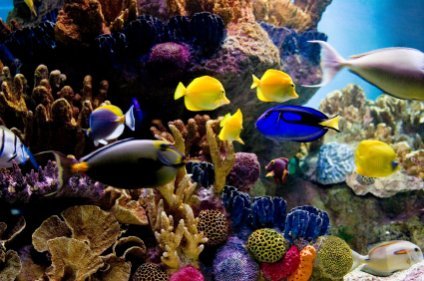And they appear to be prepared to do it rapidly, as the authors of this report discovered that offspring phenotypes fully adapted to the increase in temperature within a mere two generations, which finding, in the words of the authors, “could indicate that some tropical marine species are more capable of coping with global warming than has been suggested and illustrates a potential limitation of short-term experiments in predicting the long-term impacts of climate change”… Read More
Additional New Research Reviews
Climate-Related Disasters and Social Unrest (17 July 2012)
How often do the former phenomena lead to the latter unfortunate situation? According to the author of this paper, “to the extent that climate-related natural disasters affect the risk of conflict, they contribute to reducing it.” And he finds that this result holds “for a measure of climate-related natural disasters in general, as well as drought in particular”… Read More
CO2 vs. Ozone: Their Effects on Chinese Pine Trees (17 July 2012)
New findings suggest a huge win for CO2 in its battle with O3 to impact the growth and development of Chinese pine trees… Read More
Acclimatization of Corals to Thermal Stress (17 July 2012)
A new addition to their “bag of tricks” is revealed, further suggesting that Earth’s corals may be much better adapted to dealing with global warming than has long been believed… Read More
A Data-Rich 1200-Year Temperature History of the Northern Hemisphere (18 July 2012)
The most data-inclusive study of the subject yet to be conducted yields the most reliable results yet to be derived. As seen in numerous other paleo-temperature reconstructions stretching back over a millennium or more, there is nothing unusual, unnatural or unprecedented about Earth’s current level of warmth when compared to that of the Medieval Warm Period, when there was way less CO2 in the air than there is currently (~280 ppm then vs. ~395 ppm now)… Read More
Effects of Rising Temperatures on the Progamic Phase of High-Mountain Plants (18 July 2012)
Are they such as will lead to the extirpation of high-mountain plants if the planet continues to warm?… Read More
The Potential for Adaptive Evolution to Enable the World’s Most Important Calcifying Organism to Cope with Ocean Acidification (18 July 2012)
A major new study demonstrates that the keystone species is fully prepared to meet the challenge that climate alarmists are attributing to past, current and projected anthropogenic CO2 emissions… Read More
Woody Plants Invading Grasslands (18 July 2012)
From the results of this study, it can likely be concluded that as the air’s CO2 content continues to rise, promoting the spread of woody plants into semi-arid grasslands around the globe, ever more carbon will likely be captured and stored, both above- and below-ground, which phenomenon tends to slow the rate-of-rise of the atmosphere’s CO2 concentration and reduce the ultimate degree of warmth that might otherwise be attained by the planet… Read More
A Model Passes the Test for Tropical Cyclones (18 July 2012)
General Circulation Models are slowly improving as computer power increases, and more powerful computers allow for model horizontal resolutions that are currently the domain of weather forecast models. Resolution has traditionally been viewed as one of the biggest sources for model errors. Manganello et al. (2012) demonstrate that a high resolution GCM can adequately represent observed Northern Hemisphere tropical cyclone frequencies, and also their structure… Read More





